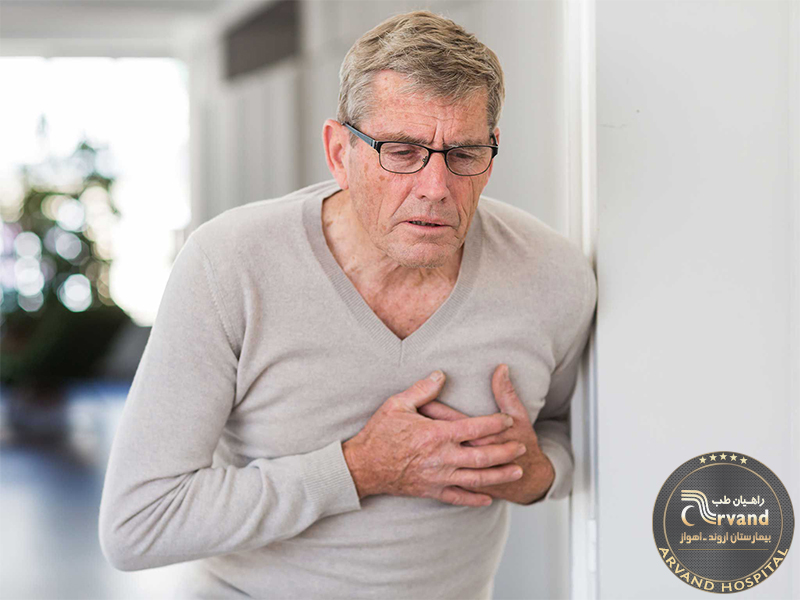
Arvand specialized hospital...

Arvand specialized hospital...

What is a heart attack?
Myocardial infarction occurs when an area of the heart muscle is permanently damaged or dead due to inadequate oxygen supply. Most heart attacks are caused by a clot that blocks one of the coronary vessels (blood vessels that Carries oxygen to the heart muscle). The clot in the vein disrupts blood flow and oxygenation to the heart muscle, causing the heart cells to die in the area. The damaged heart muscle is capable of contracting from the heart. Loses.
What factors increase the risk of coronary heart disease and heart attack?
Smoking
Hypertension
High fat diet and increased blood fat
age increasing
Sedentary
Inheritance
What are the Symptoms of Myocardial Infarction?
The most important symptom is chest pain with the following characteristics:
Chest pain and back pain (middle bone)
Often the pain in your chest spreads to your arms or shoulders, neck, teeth, jaw or back. Sometimes pain is felt in only one of these areas.
The pain usually lasts more than 15 minutes and is not resolved by resting or taking medication, but in many people, especially the elderly and diabetic patients, the pain may be minor or even absent (mild heart attack).
Symptoms may include shortness of breath, lightheadedness, headache, fainting, nausea or vomiting and sweating alone or with chest pain.
Treatment of myocardial infarction
Heart attack is a medical emergency, admission to cardiac care is required, continuous monitoring of the ECG begins rapidly Treatment goals include stopping the progression of heart attack, reducing heart burden and preventing complications.
Medications and liquids are injected directly into a vein through a vein. Usually oxygen is prescribed, medications are used to control pain and reduce the need for oxygen to the heart. Use a clot solver within 12 hours after the onset of chest pain and prescribe anticoagulants to prevent the formation of new clots.
Contact your doctor
If you have symptoms such as shortness of breath, chest pain, paleness, cold sweat, nausea and vomiting, palpitations, hypertension or bruising, call the emergency number or call the hospital.
Prevent Myocardial Infarction and Coronary Artery Disease by:
Control your blood pressure.
Keep your blood cholesterol normal and take medication if needed.
Quit smoking if you are a smoker.
Eat a low-fat diet containing plenty of fruits and vegetables and no animal oil.
Control diabetes.
Lose weight if you are obese.
Have a walk or other exercise daily or several times a week to improve your heart rate. Talk to your doctor about this.
Have a quiet life and control the stress in your life and get enough sleep at night.
Following a heart attack, follow-up is necessary to reduce the risk of another heart attack. A cardiac rehabilitation program is often recommended to return to daily life. Continue the exercise, nutrition and medication program as prescribed by your doctor.
Three important health principles
Eat healthy food
Being physically active
No smoking (smoking, ...)